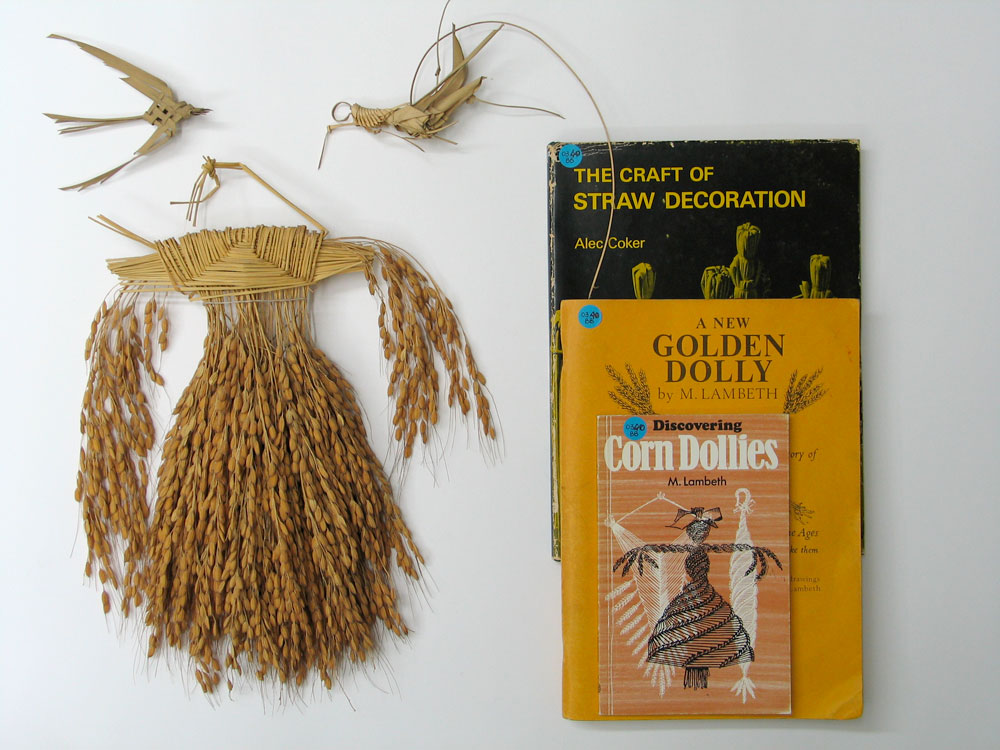Library Vegetable plaiting in folk tradition
I’ve long been interested in the plaiting of vegetable elements, see Meduse and Alberi in Textile Structures, and Collane opalescenti in Textile Design. Vegetable elements possess a suppleness that enables them to harmoniously inhabit space. Over the years I’ve been collecting and studying baskets, to which I’ll soon devote a special page in Collections. Several books in my library are devoted to basketry and vegetable structures, including structures made with live plants. They are studied both from an historical and etnographic point of view and as artistic expressions, like the works of Ed Rossbach. A small special section is devoted to corn dollies, made by peoples as different as those of Great Britain, Scandinavia, North Africa and India to thank their gods for a plentiful harvest. In the 1960s in the window of a small notions store in Milan I noticed, much to my surprise, this little doll made with rice stems. It had been made by the owner’s daughter who worked as a weeder in the rice fields near Vercelli, in Piedmont. I still hope to find out more about it from some old rice-field worker or an expert of local traditions, otherwise, fifty years on, maybe I’ll go and investigate myself.

ALEC COKER. The Craft of Straw Decoration: For Corn Dolly Makers and Workers in Straw. Leicester (UK): The Dryad Press, 971, 85 pages, b&w ill., ISBN 85219-078-6
MINNIE LAMBETH. A New Golden Dolly: the art, mystery and history of corn dollies through the ages describing all types & how to make them. Fulbourn, Cambs (UK): Cornucopia Press, 1966, 120 pages, b&w
MINNIE LAMBETH. Discovering Corn Dollies. Oxford: Shire Publications, 1987, 48 pages, b&w ill., ISBN 0-85263-283-5